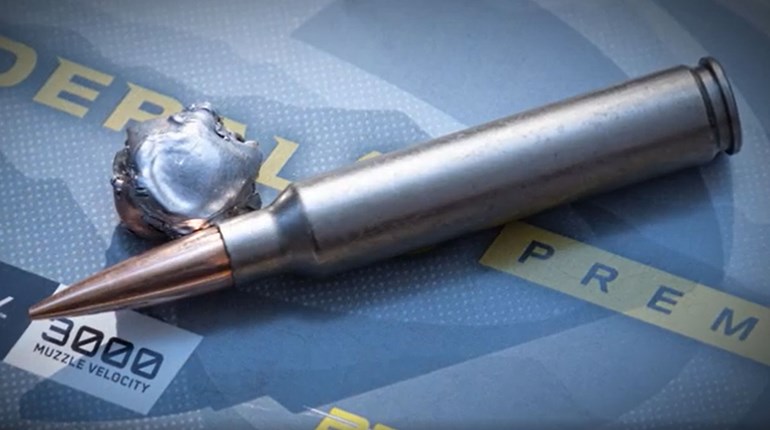
Popular myth, shoved at us by so many in the mainstream media, has it that the Centers for Disease Control and Prevention (CDC) is barred from doing research on gun violence. The NRA is often vilified in news stories on this topic, as many in the mainstream media, as well as the politicians who want to take away your right to bear arms, claim that NRA lobbying halted needed research.
The first problem with this claim is it’s simply not true.
This contention focuses on the “Dickey Amendment,” passed in 1996 and named after former Rep. Jay Dickey (R-Ark.). Those making this claim rarely quote the actual amendment because it clearly does not ban the CDC from doing research on gun-violence prevention. The Dickey Amendment simply says: “None of the funds made available for injury prevention and control at the CDC may be used to advocate or promote gun control.”
That’s it. The Dickey Amendment bars the CDC from politically promoting gun control—not from researching gun violence in order to present us with solutions.
So what’s really going on here? First, the groups and politicians who want the Dickey Amendment repealed clearly want to use public money to create politically one-sided “studies” that would have the sole purpose of pushing for more gun control. The Dickey Amendment was actually put into law precisely because some officials at the CDC were using their positions to promote their political agenda on guns.
Gun violence research hasn’t been stopped. Actually, there is more being done today than ever before.
“We’re going to systematically build a case that owning firearms causes deaths. We’re doing the most we can do, given the political realities,” said Dr. P.W. O’Carroll, then acting Section Head of Division of Injury Control of the CDC, in a 1989 quote in the Journal of the American Medical Association. In 1994, O’Carroll’s successor, Dr. Mark Rosenberg told in The Washington Post: “We need to revolutionize the way we look at guns, like what we did with cigarettes. It used to be that smoking was a glamour symbol—cool, sexy, macho. Now it is dirty, deadly—and banned.”
That’s political activism, not objective scientific analysis. There was a political reaction to this activism that resulted in the passage of the Dickey Amendment. In 2018, in an appropriations act, Congress pointed out that this amendment does not ban the CDC from researching gun violence and said: “While appropriations language prohibits the CDC and other agencies from using appropriated funding to advocate or promote gun control, the Secretary of Health and Human Services has stated the CDC has the authority to conduct research on the causes of gun violence.”
Nevertheless, this isn’t what has largely been reported by the mainstream media.
“What’s needed is a critical reform rarely discussed on the campaign trail: finally removing the 23-year ban on funding research on gun violence that’s blocking the information we need to save thousands of lives,” said an opinion piece in The Hill. “Lift the federal ban on gun violence research,” said The New Republic. “Research into gun violence by the U.S. Centers for Disease Control and Prevention has been largely stalled since 1996, when Congress approved the Dickey Amendment, which forbade the CDC to use its funding to promote gun control,” said The Washington Post.
Has Gun-Violence Research Really Been Stalled?
Gun-violence research hasn’t been stopped. Actually, there is more being done today than ever before. Much of this mainstream-media misinformation is supported with claims from groups like Michael Bloomberg’s group Mayors Against Illegal Guns (MAIG). For example, in 2013, MAIG falsely claimed that, as a result of the Dickey Amendment, “academic publishing on firearm violence fell by 60% between 1996 and 2010.”
To generate this false statistic, MAIG measured firearms research in medical journals as a percentage of all medical research when research was expanding into other areas. Also, a lot of research on homicide rates and so on occurs in publications outside of medical-related journals, as crime is different from hepatitis or cancer.
Actually, John Lott, founder and president of the Crime Prevention Research Center (CPRC), determined: “There was no decrease in either the total number of papers or pages devoted to firearms research.” Lott surveyed the research and found that “since 2011 firearms research in medical journals has increased more than five-fold, as former New York City Mayor and multi-billionaire Michael Bloomberg has poured untold tens of millions of dollars into the effort.”
Why Do They Want The CDC Involved?
To push a gun-ban agenda, the mainstream media needs some breaking news to spin or some convenient studies to promote. To generate studies for use in promoting gun control, the U.S. House of Representatives, under Rep. Nancy Pelosi’s (D-Calif.) leadership, recently passed $50 million in funding for the CDC and the National Institute of Health (NIH) to “study” gun violence. The U.S. Senate, under current leadership, isn’t likely to take up and pass this funding. Still, its passage in the House has been used to generate a lot of news stories that characterize the politicians who oppose giving the CDC and NIH $50 million to push a political agenda as people who don’t care about the victims of gun violence.
Generating propaganda to push this political goal is one reason why the Democratic leadership in the House wants the CDC and NIH to get $50 million (legislatively mandated) to be spent on gun-violence prevention. Another reason is they want medical professionals to use the same tools and methodology to study gun violence that they’ve developed to study cancer and other diseases. Gun violence and cancer are very different things, but if they can get gun violence treated as a virus or disease they can argue that we need to reduce risk factors (in this case gun ownership) to control the problem.
Never mind that areas with more legal guns have been shown to be statistically safer. They would use inner-city, gang-related violence and the illegal guns they use as a justification for more severe restrictions on the law-abiding, gun-owning population.
How Much Is Being Spent?
A lot of money has already been spent on anti-gun-rights research. Groups such as George Soros’ Open Society Foundation and the Joyce and MacArthur Foundations have amassed millions for the Fund for a Safer Future (FSF) to accomplish this goal. FSF says it “has made more than $7M in grants to reduce gun violence since 2011.” These funds have gone to groups like the Violence Policy Center—a group that is even opposed to concealed carry—and to many other organizations working to take away your right to bear arms.
This has been going on for a long time. For example, in 2013 then-President Barack Obama met with 23 large foundations to spur them into funding research designed to support a national push for gun control. During that time, states (including California and New Jersey) devoted millions of dollars to the gun-control effort. In 2018, the RAND Corp. announced a new $20-million fund to create and push gun-control research, adding that it hoped to raise another $30 million.
Meanwhile, the federal government is still funding gun-violence research. “Federal agencies spent over $43 million on this cause between 2015 and 2018,” reported the CRPC. “In 2016 and 2017, NIH gave a total of $1.3 million to just one group headed by Boston University and gun-control advocate Michael Siegel.”
“I have been an academic for most of my life and can’t fathom how one could legitimately spend that much money on the small studies that mostly just crunch government-gathered data,” says Lott. “But no one seems to worry whether this federal research money—money taken from the pockets of American taxpayers—is being wasted or used for a blatant political purpose.”
All this gun-research money from the government (as well as from wealthy people such as Bloomberg and from many left-leaning foundations) is going overwhelmingly to public-health researchers who have a bias against our right to bear arms. “These researchers cherry-pick research to focus on particular states in particular years. If 20 states have passed a law, why look at just one?” Lott asked rhetorically. “Obviously, to find the result that best supports the preconceived advocacy agenda of researchers.”
Some of the examples of this data-mining the CRPC found included a claim that a Connecticut gun-licensing law caused a 40-percent drop in the state’s homicide rate when the homicide rates fell nationally by 32 percent at the same time. “If the period of study had been one year longer or one year shorter, the national drop would have been much larger,” said Lott. In another example, to exaggerate risks that households with guns face, the CRPC found that researchers lumped gang fights involving “children” 18 and 19 years of age into data on guns in peoples’ homes.
In an attempt to treat gun ownership like a disease—and therefore to ban or further restrict access to guns—this research misses what actually causes the violence. “Over 50 percent of murders occur in just 2 percent of the counties and even in those counties it is mainly in very small areas of about 10 blocks,” says Lott. “Obviously, the problem causing a great deal of violence is drug gangs. If you are going to solve the problem you have to reduce the profits those gangs get from selling drugs.”
Nevertheless, it is difficult to make these complicated points through the mainstream media’s filters. The mainstream media often will simply run Bloomberg’s or Giffords’ agenda-driven data verbatim without even noting who those gun-control-advocacy groups really are. They also often won’t report inconvenient facts. The media bias can get so omnipresent that, as Ted Alcorn (who calls himself a “reporter” at The New York Times) tweeted that he only thinks gun-control advocates can be called “experts.”
Right now, thanks to massive amounts of money being spent for “research” from Bloomberg and others, there is a coming wave of anti-gun research likely to be published in the months before the 2020 election. The mainstream media will use these studies in an attempt to control the narrative in favor of more gun bans and restrictions—and thereby to support whoever wins the Democratic Party’s nomination for president.


































